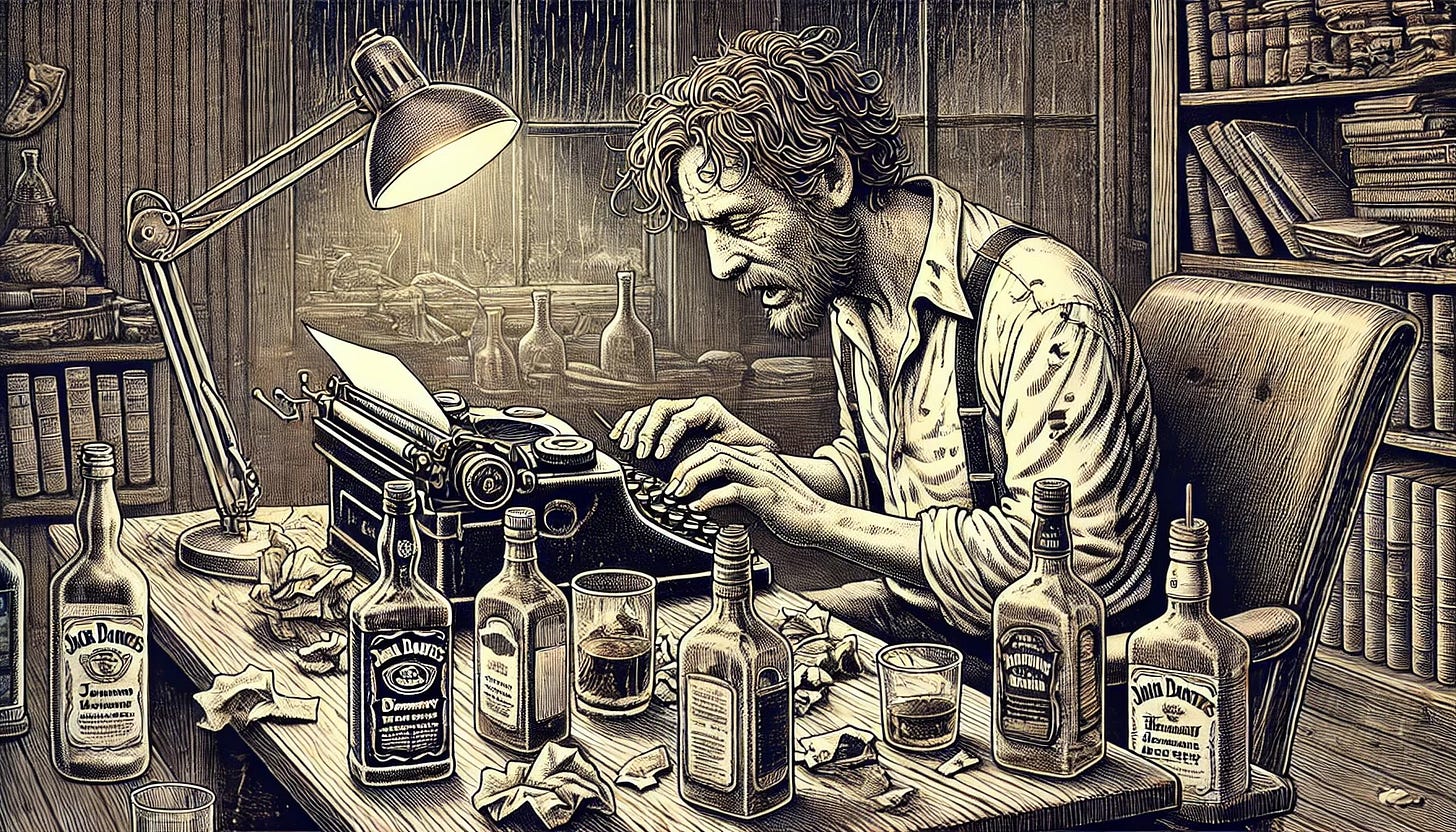Do Writers Really Work Better Drunk? Should you 'Write Drunk, Edit Sober'?
Hemingway was against it...
The aphorism ‘Write drunk, edit sober’ is often incorrectly attributed to Ernest Hemingway. After all, he was famous for writing and drinking, so it makes sense. The problem is, it’s not true. Hemingway was consistent - he wrote very early in the morning and drank in the evening.
So, if anything, he both wrote and edited hungover, which is a lot less appealing.
However, the myth of the heavy drinking writer is partially true, but their talent is arguably despite the booze, not a result of it.
The origins of the saying
The handy website Quote Investigator lived up to its name and looked into the origins of this. There are actually two slightly different versions of the saying:
Write drunk, edit sober.
Write drunk, revise sober.
According to Quote Investigator, there has never been a record of Hemingway saying either of these phrases. The first appearance of the quote seems to be in a novel called Reuben, …
Keep reading with a 7-day free trial
Subscribe to Intriguing Times to keep reading this post and get 7 days of free access to the full post archives.





